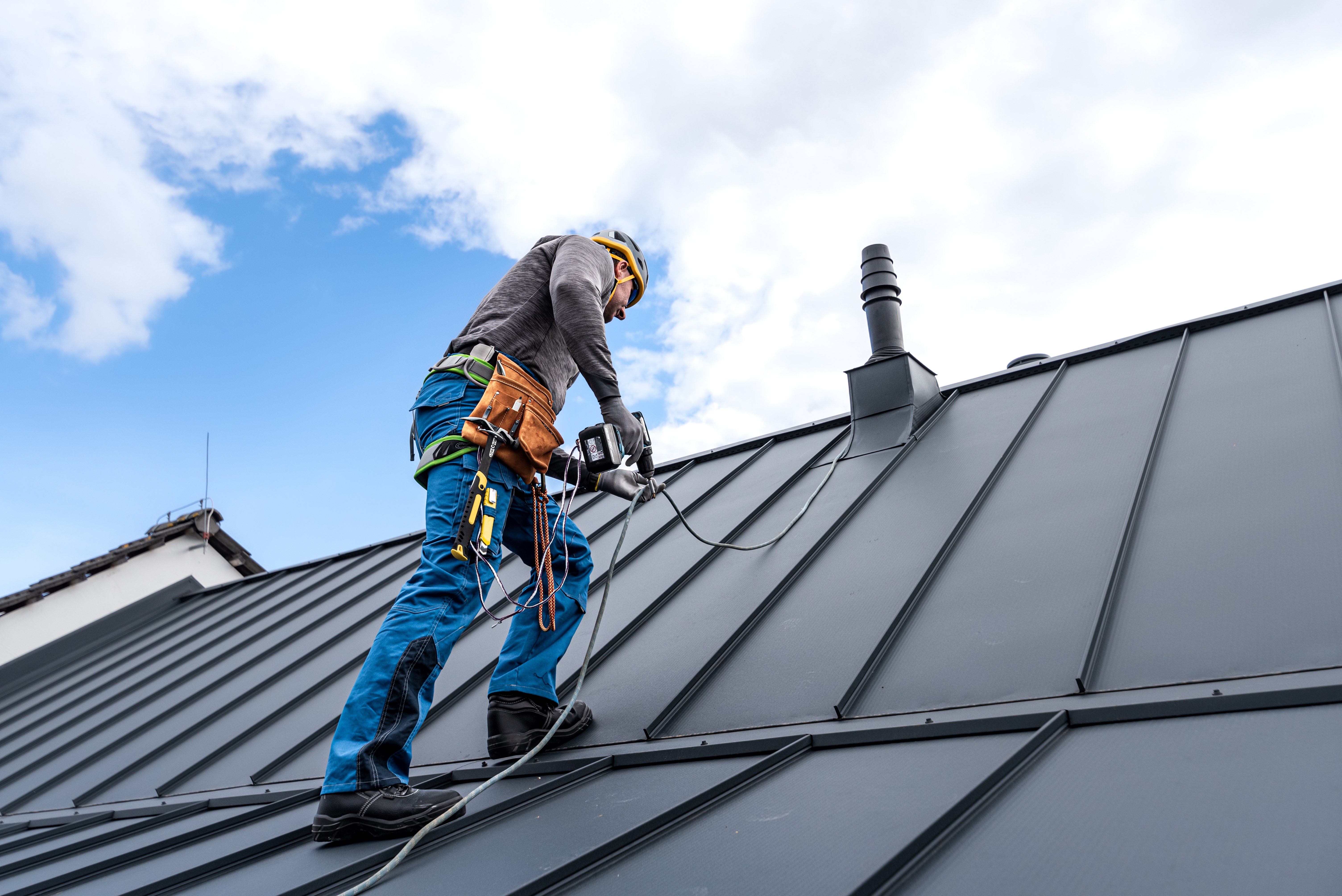
A metal roof can keep your Washington, D.C. home energy efficient. Learn how much a metal roof costs in Washington, D.C., and what affects how much you’ll pay.
The longest-lasting option for your flat roof
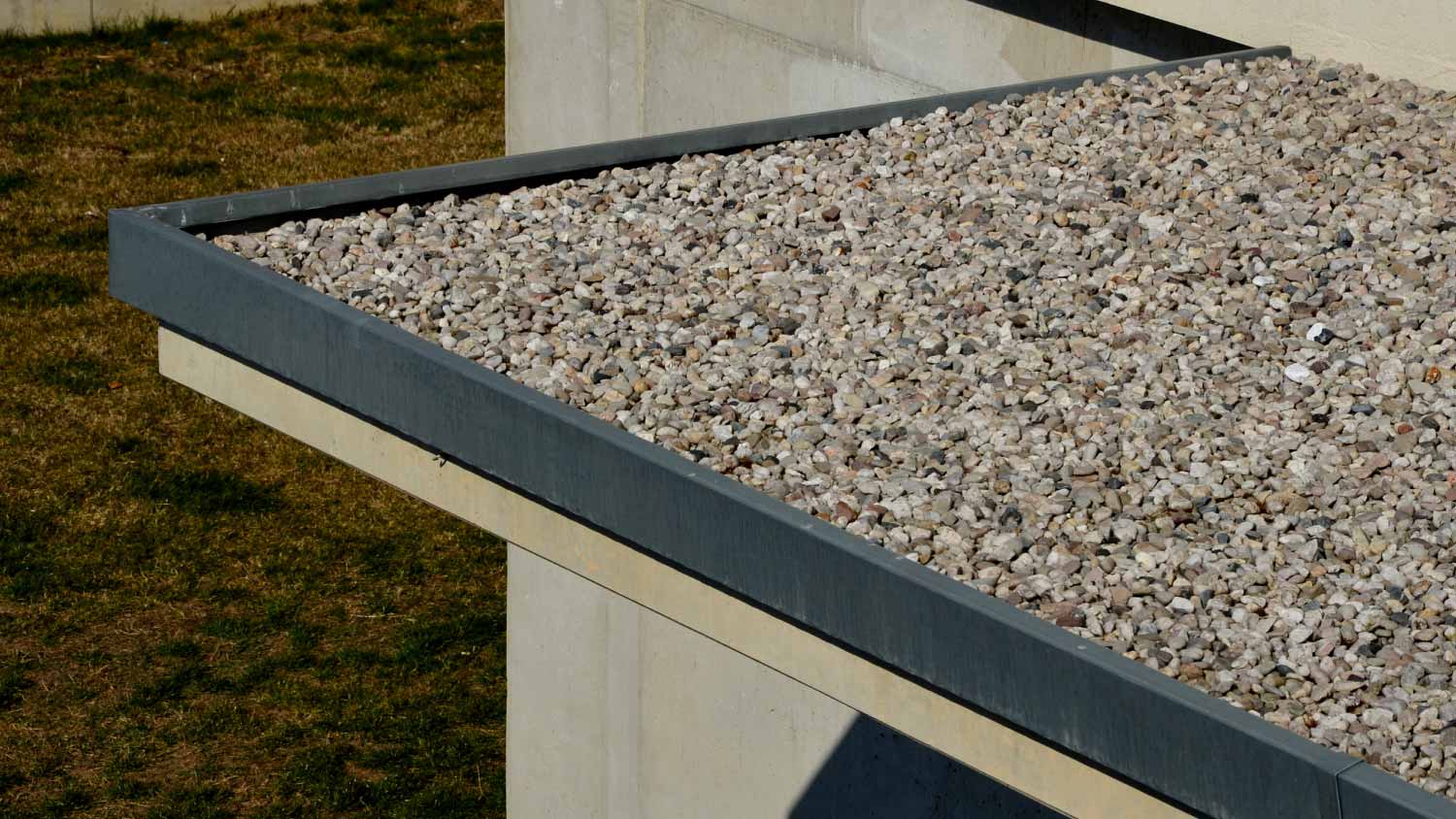

A tar and gravel roof is more challenging to repair than a built-up roof but requires repairs less often.
Gravel is a heavy material and may require structural reinforcement prior to installation.
Tar and gravel roofs last for an average of 30 years, making them the most durable flat roof option.
You have a few options when it comes time to replace your flat roof, and a tar and gravel roof is one of the best if you’re looking for longevity and protection from impact and physical damage. In this guide, we’ll explain what a tar and gravel roof is, the benefits and drawbacks, and more to help you decide if this is the right roof for you.
A tar and gravel roof, also called a built-up roof (BUR), is a flat roof option that consists of layers of roofing felt and asphalt, which your roofer will heat up with a torch to create a waterproof membrane. The roofer you hire then lays down a layer of gravel over the membrane to add protection from impact and UV radiation from the sun.
Tar and gravel roofs have the longest lifespan of any flat roof material, lasting an average of 30 years. They’re particularly good options in areas with extreme weather that can blow debris or knock down tree branches and limbs that could otherwise puncture the roofing membrane, as the gravel helps protect the asphalt layers below. In extreme climates, they can reduce how often you need to pay for flat roof replacement.
Standard built-up roofs without gravel also need resealing every two to five years to prevent damage from UV radiation, and the gravel adds protection from the sunlight to eliminate the need for resealing. Tar and gravel roofs also provide outstanding value for the money, as they last longer and cost less than other options, like TPO roofs and EPDM roofs.
"UV protection is a critical factor—reflective roofing materials and coatings help extend a roof’s lifespan by reducing heat absorption and preventing material degradation. Ultimately, homeowners should work with a certified roofing inspector to ensure they select a system that balances longevity, efficiency, and cost-effectiveness for their specific needs."
— Paul Watrous, President of the National Roof Certification and Inspection Association (NRCIA)
There are some downsides to consider, though. First, while the protective gravel reduces the need for repairs, repairs will be most expensive when you do need them, as your roofer will need to remove the layer of gravel to access the membrane below. The gravel is also heavy, so you may need to pay more for structural reinforcements, which can add to your roof replacement costs.
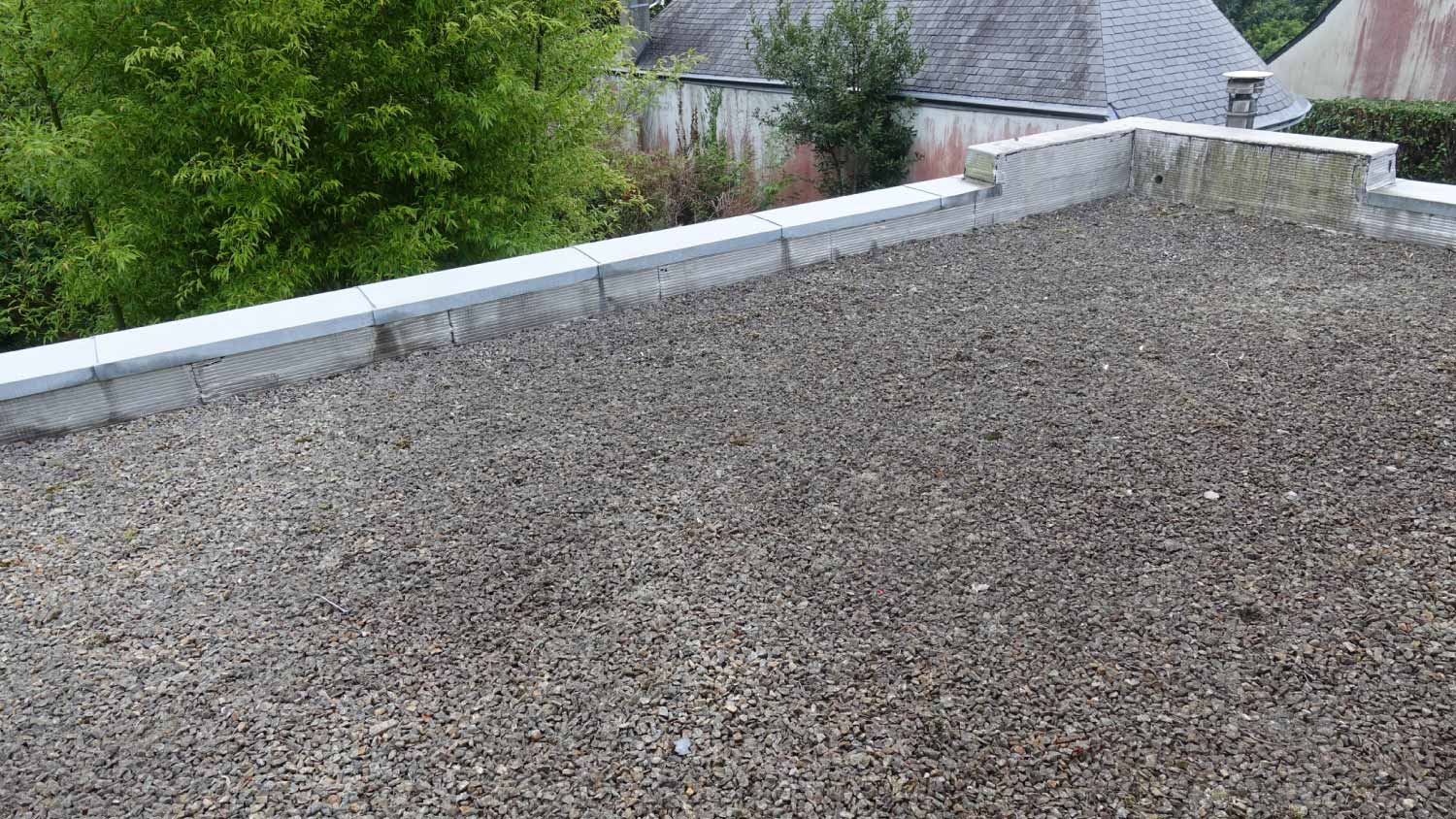
Tar and gravel roofs cost an average of $10,200, and most homeowners pay between $8,000 and $12,000, depending on the size of the roof. This is more expensive than a standard built-up roof without gravel, but you’ll get more long-term value thanks to the protective layer of gravel that reduces maintenance and minimizes the risk of roof damage and roof leaks.
Tar and gravel roofs are relatively low maintenance, so annual roof inspections and regular roof drain cleaning—both of which are required for all flat roofs—are all you’ll need to worry about in most cases. The only other maintenance item you’ll need to carry out will be routine repairs done by a local flat roofing company if you do run into a roof leak, and your roof inspections should uncover areas that need attention.
From average costs to expert advice, get all the answers you need to get your job done.

A metal roof can keep your Washington, D.C. home energy efficient. Learn how much a metal roof costs in Washington, D.C., and what affects how much you’ll pay.
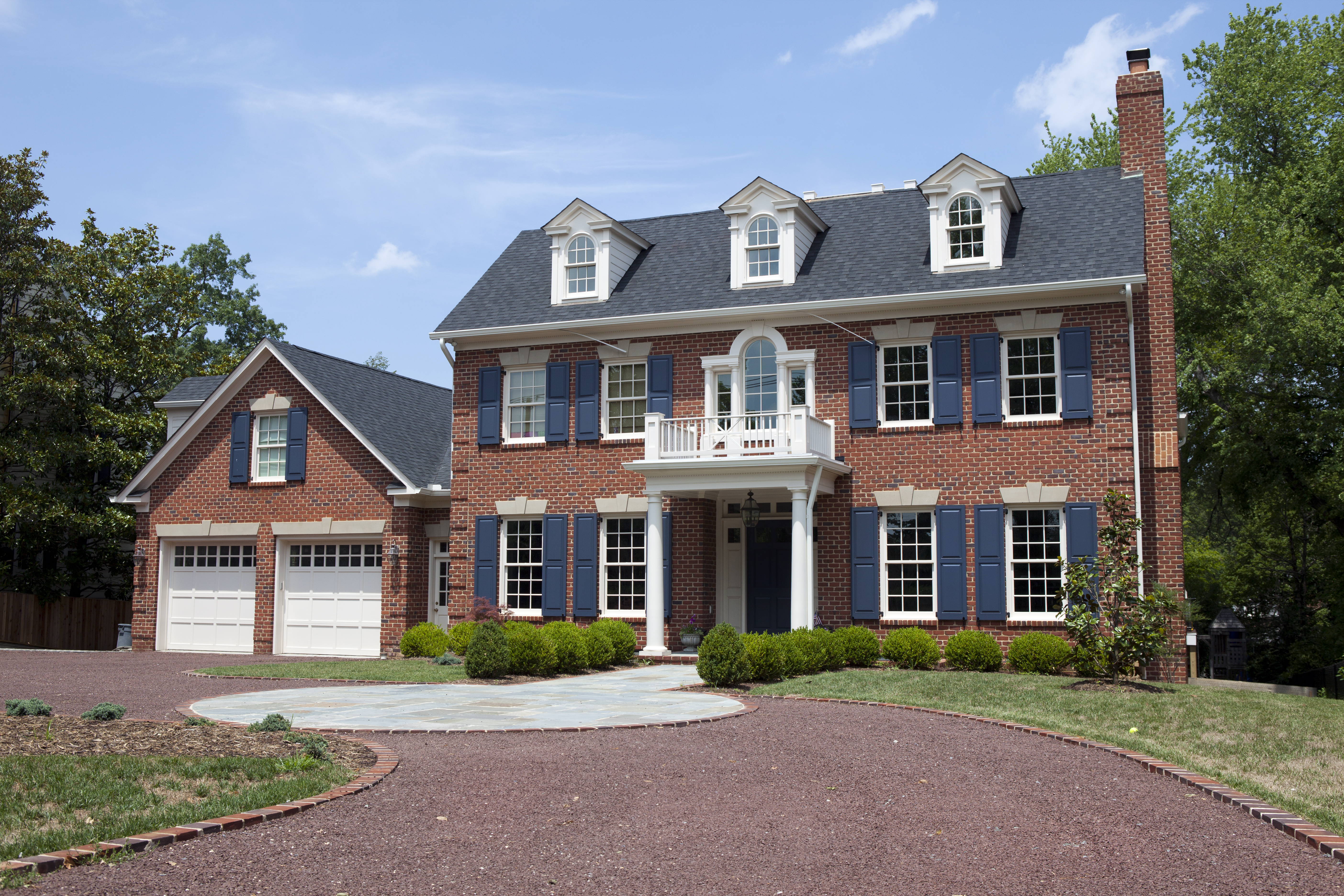
The cost of replacing a roof in Washington, D.C., depends on the roof size, material, and more. Find out how much roof replacement costs in Washington, D.C.
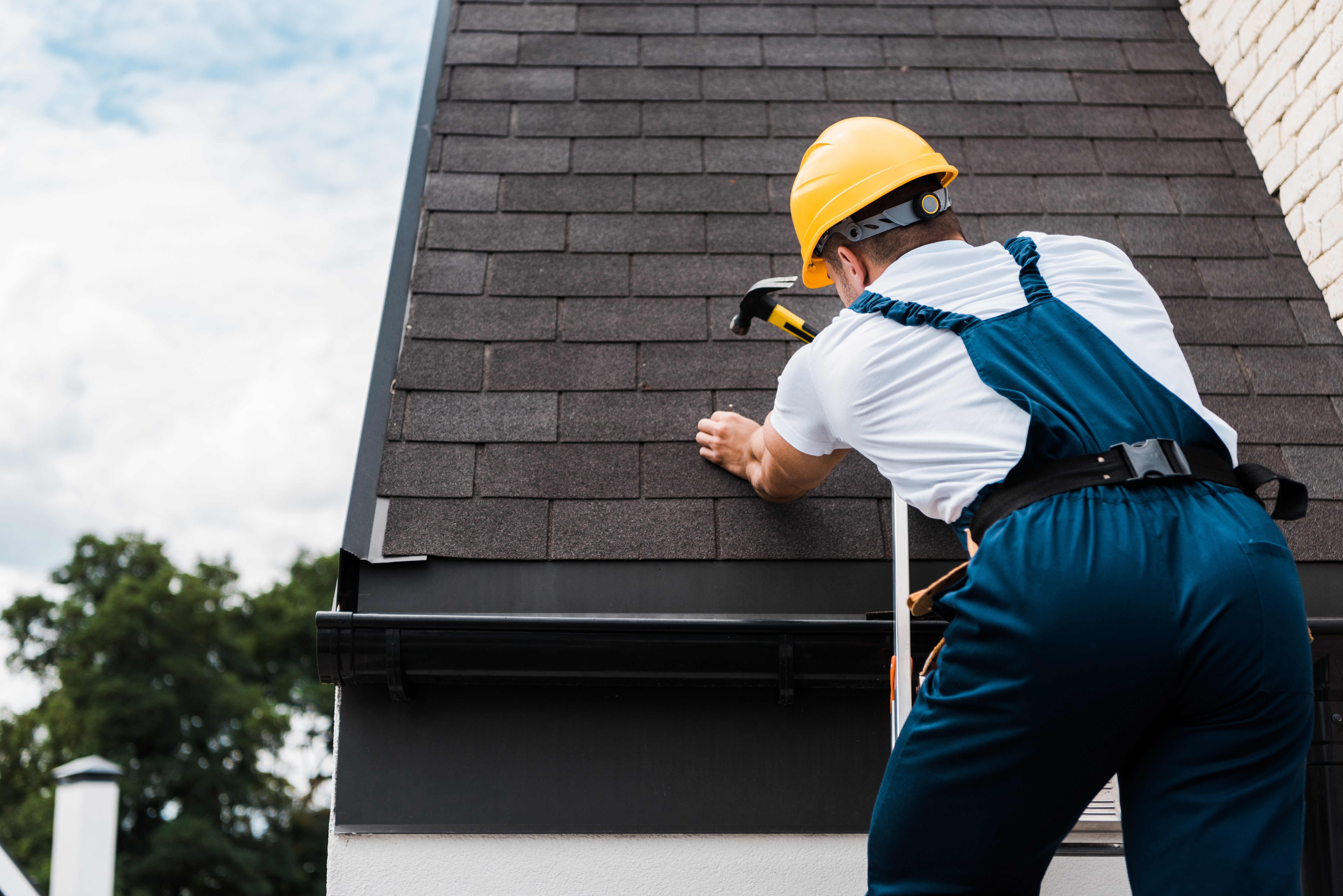
Dealing with a leaking or damaged roof? Learn about roof repair costs in Washington, D.C., to see what a permanent solution will cost you.
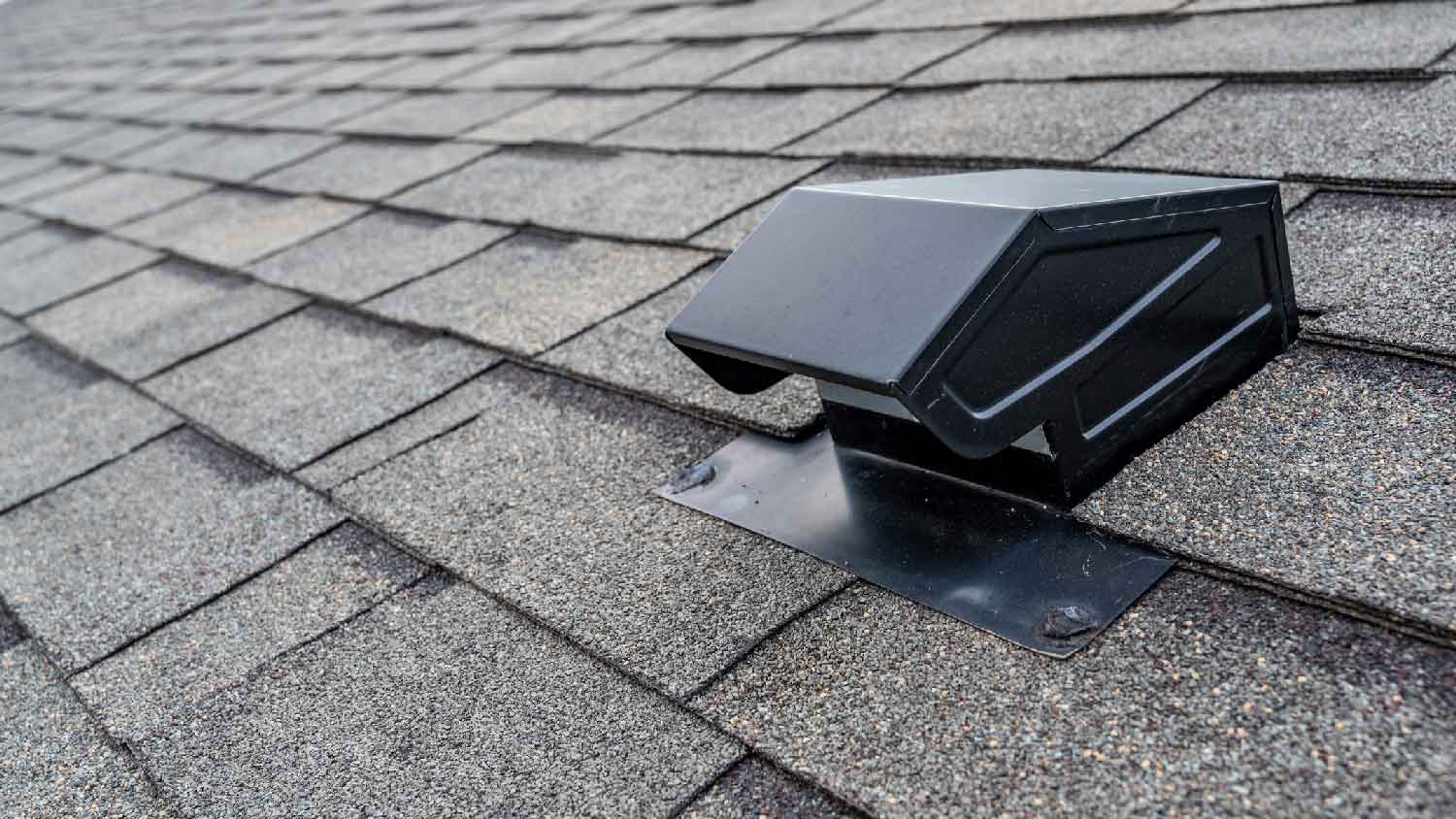
This guide lays out the cost to install a roof vent on your home depending on the type of ventilation that's best for your roof based on several factors.

Wondering how to decide between the different types of roof shingles? Here's what you need to know about each and how to choose what's best for your home.

When building a new home, adding a gable roof can deliver a timeless, classic style. Learn about the seven most popular types of gable roofs.